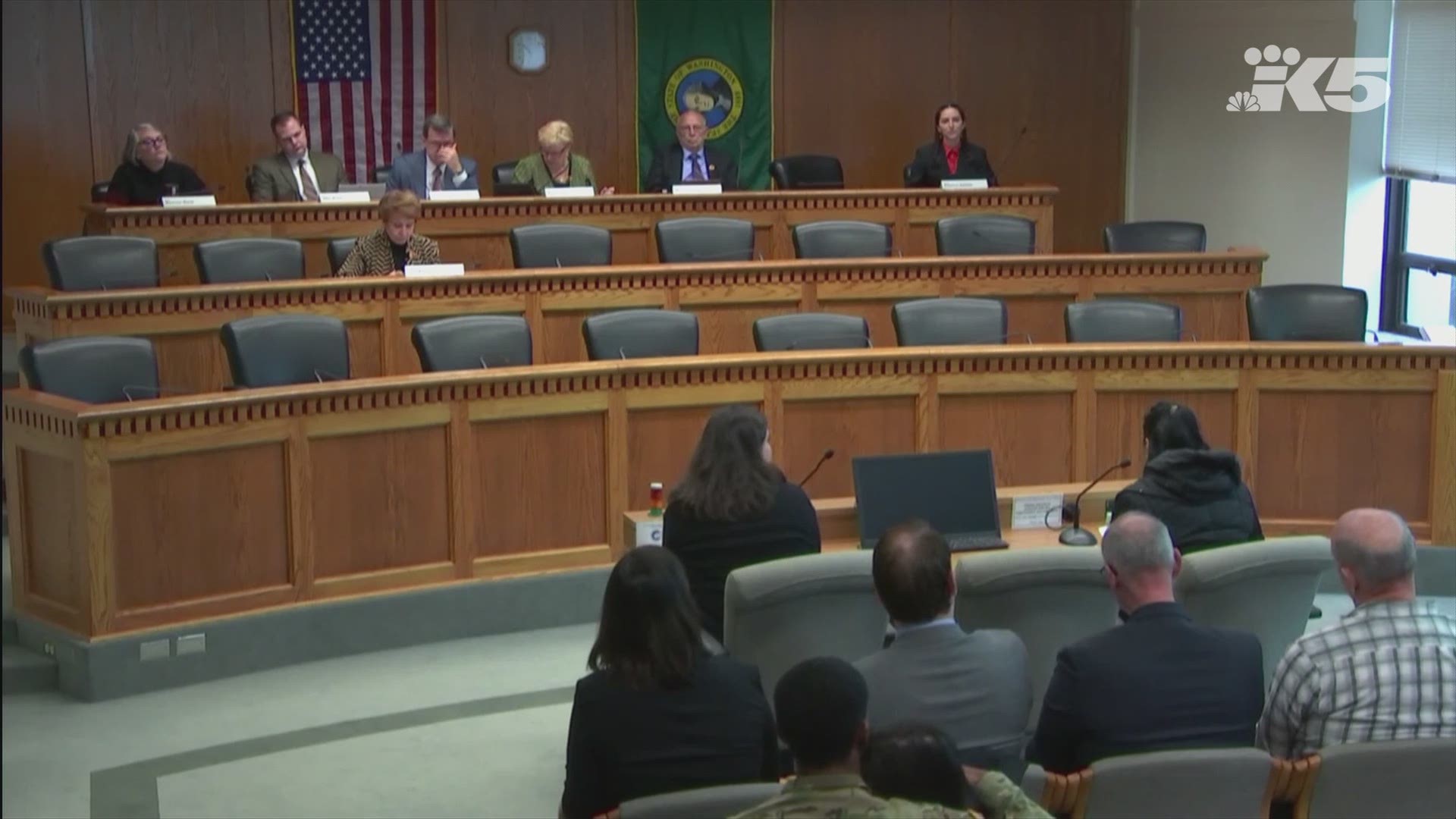A Senate bill that would further protect hospitality workers from harassment in Washington state received passionate testimony Tuesday.
One woman, a single mother working in Seattle, explained how she dealt with sexual harassment for eight months. She couldn't sleep. She was scared.
"I would go to the bathroom and cry all the time," she explained. "I got a headache every day."
The Senate Committee on Labor and Commerce heard from the Washington Hospitality Association regarding Senate Bill 5258. It would require that every hospitality, retail, behavioral health care, custodial, or labor contractor who employs a custodian, security, guard, housekeeper, or any worker who spends a majority of their time working along two or fewer co-workers in the state adopt a sexual harassment policy, provide training to all employees, as well as a list of resources. Additionally, the bill would require that employers provide those who spend the majority of their time working with two or fewer co-workers a panic button.
"We are just as passionate about our team members as we are any other part of our business, and their health and safety is essential," said Anthony Anton, Washington Hospitality Association president and CEO. "How do we take employee protection to the next level? By providing training, adopting policies and procedures and supporting the use of safety devices."
The Seattle Hotel Association testified as well.
"The Seattle Hotel Association supports the use of panic buttons," said Shannon Sheron, Managing Director, Hotel Sorrento and president of the Seattle Hotel Association. "Many of our hotels have had them in place for years and will continue to do so, as part of our vigorous commitment to employee safety. We are proud to support this bill."
Sen. Karen Keiser (D-Des Moines), who supported several bills last year to combat workplace sexual harassment, is the bill's primary sponsor.
If passed during the 2019 legislative session, it would take effect Jan. 1, 2020.
Last year, a package of bills addressing sexual misconduct took effect along dozens more. The laws came in the wake of the national conversation sparked by the #MeToo movement, and included a measure that prohibits nondisclosure agreements that prevent disclosing sexual harassment or assault. Another directed the Human Rights Commission to create a work group that would develop policies to keep workplaces safe from sexual harassment. A third voids any contract that doesn't have terms protecting an employee's rights to file sexual harassment or assault complaints with authorities.

